Ditapis dengan
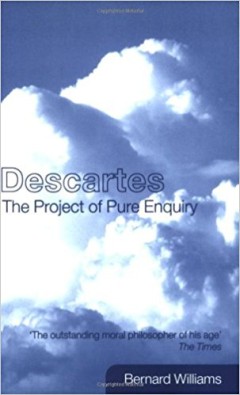
Descartes: The Project of Pure Enquiry
Descartes has often been called the 'father of modern philosophy'.His attempts to find foundations for knowledge, and to reconcile the existence of the soul with the emerging science of his time, are among the most influential and widely studied in the history of philosophy. This is a classic and challenging introduction to Descartes by one of the most distinguished modern philosophers. Bern…
- Edisi
- -
- ISBN/ISSN
- -
- Deskripsi Fisik
- 320 pg.; 20 cm.
- Judul Seri
- -
- No. Panggil
- 194 WIL d

Basic Weitings of Nietzsche
One hundred years after his death, Friedrich Nietzsche remains the most influential philosopher of the modern era. Basic Writings of Nietzsche gathers the complete texts of five of Nietzsche’s most important works, from his first book to his last: The Birth of Tragedy, Beyond Good and Evil, On the Genealogy of Morals, The Case of Wagner, and Ecce Homo. Edited and translated by the great Nietz…
- Edisi
- -
- ISBN/ISSN
- 0679783393
- Deskripsi Fisik
- xxiv + 862 pg.; 20,5 cm.
- Judul Seri
- -
- No. Panggil
- 193 BAS b
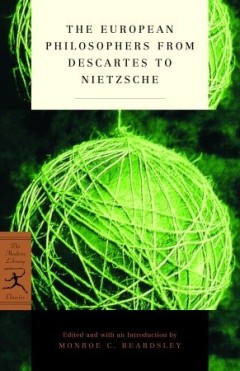
The European Philosophers From Descartes to Nietzsche
“Between the earliest and the latest of the works included here, we have two hundred and fifty years of vigorous and adventurous philosophizing,” Monroe Beardsley writes in his Introduction to this collection. “If the modern period can be only vaguely or arbitrarily bounded, it can at least be studied, and we can ask whether any dominant themes, overall patterns of movement, or notable ac…
- Edisi
- -
- ISBN/ISSN
- 0375758046
- Deskripsi Fisik
- xxiv + 909 pg.; 20,5 cm.
- Judul Seri
- -
- No. Panggil
- 190 EUR e
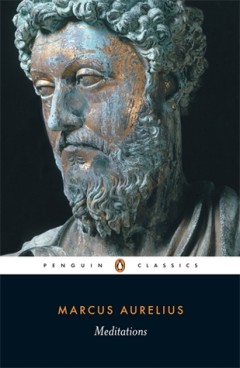
Meditations
Written in Greek, without any intention of publication, by the only Roman emperor who was also a philosopher, the Meditations of Marcus Aurelius (AD 121-180) offer a remarkable series of challenging spiritual reflections and exercises developed as the emperor struggled to understand himself and make sense of the universe. Ranging from doubt and despair to conviction and exaltation, they cover …
- Edisi
- -
- ISBN/ISSN
- -
- Deskripsi Fisik
- 188 pg.; 18 cm.
- Judul Seri
- -
- No. Panggil
- 158.128 AUR m.a

A History of Philosophical Systems
Editor Vergilius Ferm brings together the theories of over forty-one prominent philosophers in this well-organized and thoughtful overview of philosophical systems. You’ll find compelling entries from each school of thought including Buddhist and Christian philosophies, Positivism, Phenomenology, Evolution, and more. This text, which includes the work of philosophers from ancient Greece all t…
- Edisi
- -
- ISBN/ISSN
- -
- Deskripsi Fisik
- xiv + 642 pg.; 20,5 cm.
- Judul Seri
- -
- No. Panggil
- 190 HIS h
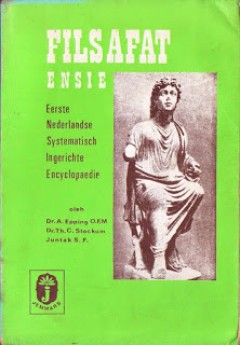
Filsafat Ensie
Buku Filsafat Ensie membagi uraiannya ke dalam sejarah dan sistematik. Pada bagian sejarah dibahas lebih dulu filsafat Tiongkok dan Hindia, kemudian filsafat negara-negara Barat dimulai dari Yunani dan Romawi. Setelah itu, disambung dengan filsafat pada Abad Pertengahan, kemudian filsafat pada zaman baru, dan akhirnya filsafat pada zaman terbaru. Meskipun tidak diadakan pembatasan-pembatasan ya…
- Edisi
- -
- ISBN/ISSN
- -
- Deskripsi Fisik
- 266 hlm.; 21 cm.
- Judul Seri
- -
- No. Panggil
- 190 EPP f
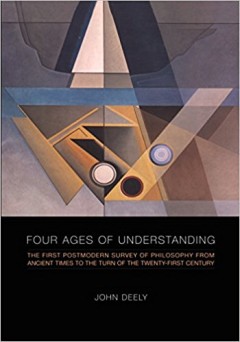
Four Ages of Understanding: The First Postmodern Survey of Philosophy From An…
This book redraws the intellectual map and sets the agenda in philosophy for the next fifty or so years. By making the theory of signs the dominant theme in Four Ages of Understanding, John Deely has produced a history of philosophy that is innovative, original, and complete. The first full-scale demonstration of the centrality of the theory of signs to the history of philosophy, Four Ages of U…
- Edisi
- -
- ISBN/ISSN
- 0802047351
- Deskripsi Fisik
- xxxiii + 1019.; 25,5 cm.
- Judul Seri
- -
- No. Panggil
- 190 DEE f
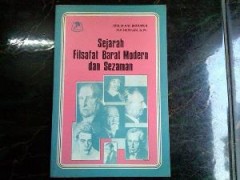
Sejarah Filsafat Barat Modern dan Sezaman
- Edisi
- -
- ISBN/ISSN
- -
- Deskripsi Fisik
- x + 226 hlm.; 20,5 cm.
- Judul Seri
- -
- No. Panggil
- 190 BRO s
- Edisi
- -
- ISBN/ISSN
- -
- Deskripsi Fisik
- x + 226 hlm.; 20,5 cm.
- Judul Seri
- -
- No. Panggil
- 190 BRO s
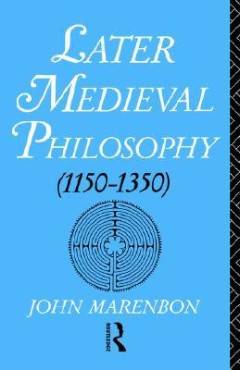
Later Medieval Philosophy (1150-1350): An Introduction
This introduction to philosophy in the Latin West between 1150 and 1350 follows on from John Marenbon's previous book, Early Medieval Philosophy 480-1150 (Routledge & Kegan Paul, 1983). It combines an historical approach, which concentrates on the sources, forms and backgrounds of the medieval works, with philosophical analysis of thirteenth- and fourteenth-century writing in terms comp…
- Edisi
- -
- ISBN/ISSN
- 0710202865
- Deskripsi Fisik
- xii + 230 pg.; 22,5 cm.
- Judul Seri
- -
- No. Panggil
- 189 MAR l
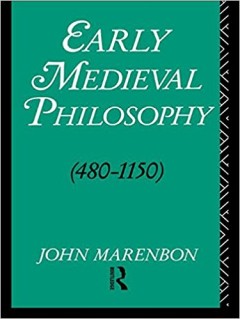
Early Medieval Philosophy (480-1150): An Introduction
Compact but singularly well thought out material of a theological, logical, poetic as well as philosophical nature.
- Edisi
- -
- ISBN/ISSN
- 04150070X
- Deskripsi Fisik
- xv + 197 pg.; 21,5 cm.
- Judul Seri
- -
- No. Panggil
- 189 MAR e
 Karya Umum
Karya Umum  Filsafat
Filsafat  Agama
Agama  Ilmu-ilmu Sosial
Ilmu-ilmu Sosial  Bahasa
Bahasa  Ilmu-ilmu Murni
Ilmu-ilmu Murni  Ilmu-ilmu Terapan
Ilmu-ilmu Terapan  Kesenian, Hiburan, dan Olahraga
Kesenian, Hiburan, dan Olahraga  Kesusastraan
Kesusastraan  Geografi dan Sejarah
Geografi dan Sejarah